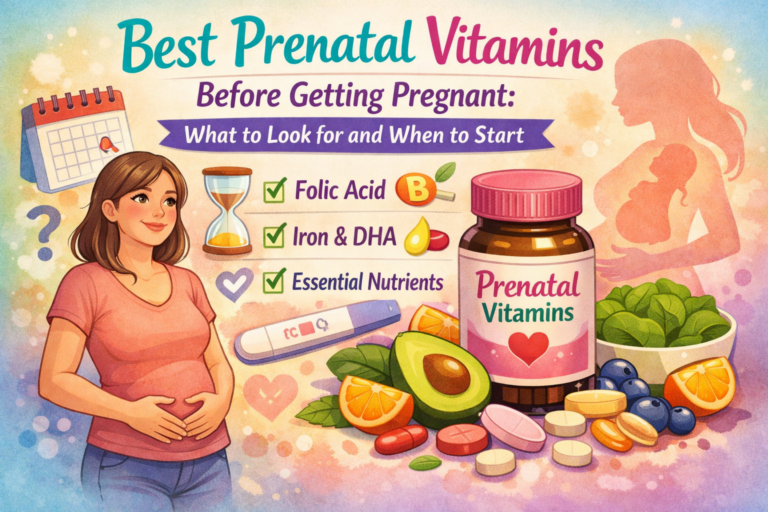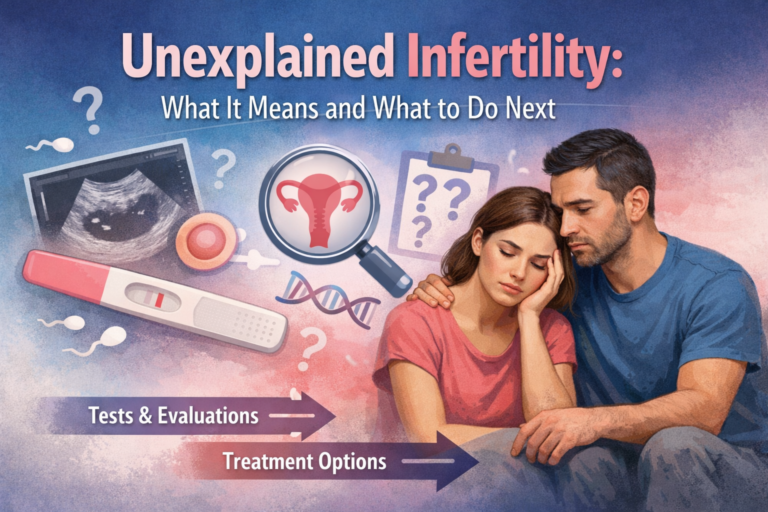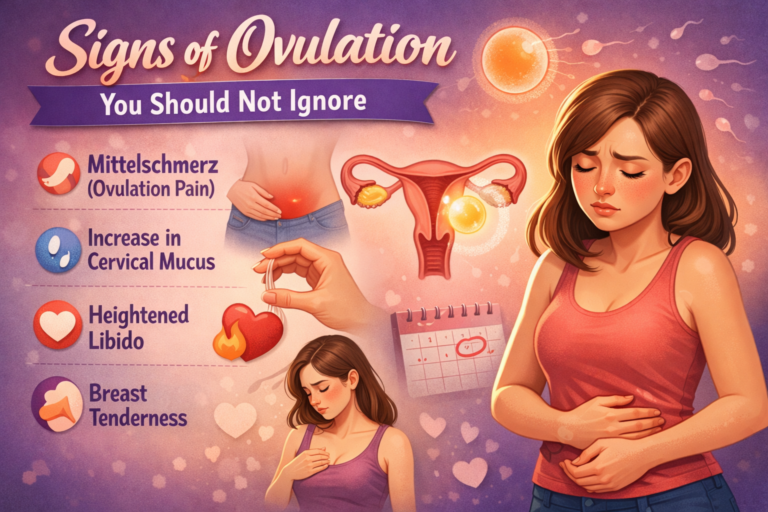
Using medications during pregnancy can be a daunting task for expectant mothers. The main issue lies in determining which medications are safe for both the mother and your developing baby. What medications are safe during pregnancy? Understanding this is crucial because certain medications can pose risks, including birth defects and other complications.
With the right information, you can make informed choices for your pregnancy health. In this topic, we will provide a comprehensive guide on what medications are safe and not safe during pregnancy. This will help you to manage your pregnancy health concerns confidently and safely. Read on to discover the essential information you need for a healthy pregnancy.
What Are The Medications?

Medications are substances used to treat or prevent diseases. They include:
- Prescription medicines: These are medications that require a written order from a licensed healthcare professional, like a doctor or dentist. You must buy them with a prescription. They often treat complex medical conditions and require a doctor’s supervision.
- Over-the-counter (OTC) medicines: They can be purchased directly from pharmacies, health food stores, or supermarkets without a prescription.
What Medications Are Safe For Pregnancies?
What medications are safe during pregnancy? Prenatal vitamins are your expecting mama’s best friend! These dietary supplements will support your health and your baby’s development throughout pregnancy. However, it’s important to be cautious with other supplements. Herbal remedies and additional vitamins should be used carefully during pregnancy. Most of them haven’t been specifically evaluated for safety during pregnancy. Their potential effects on your developing baby are simply unknown.
A List of Safe OTC Medications To Take While Being Pregnant

Is it safe to take OTC medications during pregnancy? Their labels often advise pregnant women to consult a doctor before use. According to The Royal Women’s Hospital in Australia1, below are some safe OTCs that can help with common conditions during pregnancy:
Medications for Aches and Pains
For mild to moderate pain, such as headaches and muscle pain, acetaminophen is generally considered. Always remember to take at the recommended dosage.
However, nonsteroidal anti-inflammatory drugs (NSAIDs), including aspirin, ibuprofen, and diclofenac, should be avoided. They can pose risks to your baby, particularly after 30 weeks of pregnancy. Certain NSAIDs, such as ibuprofen, can cause miscarriages, delayed birth labor, and other dangerous fetal effects. It’s crucial to consult your doctor or pharmacist before using any NSAIDs while pregnant to ensure the safety of you and your child.
Medicines For Nausea
Morning sickness can be a real drag. To deal with it – pyridoxine – a form of vitamin B6 – is often recommended. Dry toast, crackers, or ginger tea are some natural remedies you can try instead.
Medications for Allergies and Hayfever
Their symptoms can include a runny or blocked nose, sneezing, itching in the nose, eyes, ears, or throat, and watery, red, irritated eyes. To minimize symptoms, try to avoid common triggers such as pollen, house dust mites, and animal dander.
- Antihistamines: chlorpheniramine, cyproheptadine, dexchlorpheniramine, doxylamine, pheniramine, and promethazine can be used at recommended doses throughout pregnancy.
- Loratadine: This is considered safe during pregnancy, as it does not increase the risk of adverse pregnancy outcomes. You can use loratadine at the recommended dose for the shortest duration necessary at any stage of pregnancy.
For relief from eye-related allergy symptoms, the following medications in eye drop form can be used:
- Azelastine
- Ketotifen
- Levocabastine
- Olopatadine
For nose relief, corticosteroid nasal sprays which contain beclomethasone and budesonide are recommended.
Medications for Cold and Flu
If you are feeling very unwell due to a common cold, the flu, or sinus problems, it is important to contact your doctor. But if you want to take over-the-counter drugs, here are some good suggestions:
- Dry Cough: A cough suppressant, such as pholcodine or dextromethorphan, is usually considered safe while pregnant. Chesty/Productive Cough: An expectorant like guaifenesin or a mucolytic such as bromhexine can be used at the recommended dose to help clear mucus.
For Sore Throat:
- Throat Lozenges: Lozenges containing local anesthetic and antibacterial agents are generally safe during pregnancy. However, avoid excessive use to prevent side effects like diarrhea.
- Throat Gargles: Avoid gargles containing iodine. They can affect thyroid function in both you and your baby. Products containing benzydamine should only be used if advised by your doctor.
Medications for Cold Sores

Preventing cold sores is always preferable to treating them. Using a lip balm with SPF 15 or higher can help protect your lips from sun exposure, which can trigger cold sores.
If you do develop a cold sore, Aciclovir cream is considered safe to use at all stages of pregnancy. Apply it as directed to manage the outbreak and alleviate symptoms.
Medications for Constipation
Before using medication, try increasing your fiber intake by eating more fruits, vegetables, and cereals. Additionally, make sure to drink plenty of water during the day. Medications considered safe are lactulose (osmotic laxatives) and docusate (stool softeners).
Medications for Diarrhea
Diarrhea is usually short-lived and you don’t need to take medication. The primary focus should be on staying hydrated. You should take oral rehydration solutions to replace lost fluids and electrolytes.
Anyway, loperamide is recommended but only can used in the second or third trimester if advised by your doctor. Avoid using this medication during your first trimester.
Medications for Hemorrhoids
If hemorrhoids do occur, anorectal products (ointments or suppositories) are safe to use. These treatments can help alleviate discomfort and promote healing.
Medications for Heartburn
Heartburn during pregnancy is common, affecting up to 80% of pregnancies. This condition is often caused by pregnancy hormones. They relax the oesophageal sphincter, allowing stomach acid to enter the esophagus.
To alleviate mild symptoms, consider the following tips:
- Eat small, frequent meals.
- Avoid rich, spicy foods, chocolate, citrus foods, and coffee.
- Don’t lie down immediately after eating.
- Avoid eating late at night.
For additional symptom relief, you can use antacids, such as Tums and Mylanta. If symptoms persist, consult your pharmacist or doctor for further advice.
What Medicines Are Not Safe While Pregnant?

The golden rule is to never take any medication during pregnancy without consulting your doctor first. Some medicines are perfectly safe during pregnancy. But others can pose risks to your developing baby.
Some medications can cause stillbirth, miscarriage or harm your unborn baby. Below are some of the most common medications that are not safe to take during pregnancy:
- Aspirin
- Ibuprofen
- Sudafed
- Isotretinoin: drugs for acne treatment2
- Thalidomide: cures multiple myeloma and skin disease3
Medicine May Affect You Differently When Pregnancy
During pregnancy, your body undergoes significant changes to nurture your growing baby. These changes can affect how medications are processed and absorbed. Additionally, some medications can cross the placenta, potentially impacting your baby’s development. Don’t hesitate to provide your doctor with a complete list of medications you’re taking.
Be Careful With Prescription Medicine Taken Before Pregnancy
While excitement bubbles over your pregnancy, a new set of questions arises. One of them is: “What about the medications I was taking before?”
This is a crucial conversation to have with your healthcare provider as soon as you discover you’re pregnant. Some can be safe during pregnancy, while others might pose potential risks to your developing baby.
In some cases, the risks of not taking a medication might outweigh the potential risks of taking it during pregnancy. Your doctor will guide you toward the safest treatment for both you and your baby.
Be Careful With Multiple Medications
Keep in mind that even seemingly harmless drugs can interact with each other or with your prenatal vitamins. Here’s how to stay safe:
- Read Labels Carefully: Always check the ingredients list of any medication before taking it.
- Avoid Drowsiness: Skip medications that list drowsiness or sedation as a side effect.
- Consult Your Doctor: Always check with your doctor whether it is safe to combine medicines.
A Word From Babies Parent
“What medications are safe during pregnancy?”. Remember, always consult with your healthcare provider or doctor before taking any medication. Whether it’s prescription drugs, over-the-counter, or herbal, you should be careful. They can help you weigh the benefits and risks, ensuring the best care for you and your baby.
Sources
- Medicines in pregnancy. Available at: https://www.thewomens.org.au/images/uploads/fact-sheets/Medicines-in-pregnancy-171018.pdf
(Accessed: 21 June 2024)
↩︎ - Isotretinoin (accutane®) (no date) Mother To Baby | Fact Sheets [Internet]. Available at: https://www.ncbi.nlm.nih.gov/books/NBK582775/#:~:text=Isotretinoin%20causes%20birth%20defects%20in,and%20hearing%20and%20eyesight%20problems. (Accessed: 21 June 2024) ↩︎
- Sixty Years on: The history of the Thalidomide tragedy (no date) Understanding Animal Research. (Accessed: 21 June 2024) ↩︎






